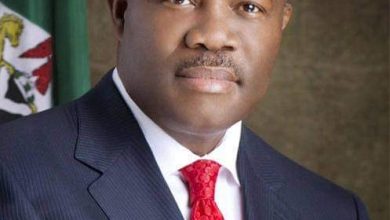Inflation Projected to Increase in September 2021 to 17.2%

A recent survey of the Lagos commodity markets and a time series model shows that headline inflation in Nigeria is likely to reverse its downward trend and increase to 17.2% for the month of September. This will be the first increase after six consecutive months of marginal declines in headline inflation in 2021. Our model suggests that both the food and non-food baskets will spike. Food inflation is projected to increase to 21.6% while core inflation will rise to 14.2%.
The reasons for the inflection in inflation are not farfetched. Since July, when the forex market went into shock after the BDCs where shut out of the official market, the naira has plunged by 15.08% in the autonomous market, dragging down the effective rate of exchange of most imported raw materials and machinery. This together with the fears of non-availability of dollars has led to speculative hoarding of products. For example, from January to date, the price flour and pasta have increased by 44.83% and 40.0% to N21,000/bag and N6,300 respectively and could increase further in the coming months. The FAO food price index was up 1.2% to 130.0 points in September on higher wheat and oil prices due to tight supply conditions amid strong demand.
Another principal driver of inflation is higher energy costs. The price of diesel, which is a major fuel used by logistics and distribution companies jumped by 84.21% to N350/litre from N190/litre in January. The price of cooking gas has also skyrocketed due to supply shortages. A 12.5kg cooking gas now cost N7,500, up 25% from N6,000 in August and could increase to N10,000 before the end of the year. This is forcing consumers to switch to alternative energy sources such as firewood and charcoal (cross elasticity of demand). The global price of natural gas touched a 7-year high of $6.5/MMBtu (7-year high) on October 5. The price of PMS is also likely to rise in the coming months as the FG mulls the removal of fuel subsidy.
All Inflation Sub-indices to Increase in September
We expect all inflation sub-indices to move in the same direction with the headline inflation in September. Month-on-month inflation is projected to increase by 0.3% to 1.52% (20.15% annualized), food inflation to rise by 1.3% to 21.6% and core inflation by 0.8% to 14.2%.
Policy shift towards stagflation
Global policy makers are beginning to shift attention from fear of inflation and overheating to stagflation (a mix of stalling growth and high inflation). The Chinese economy slowed to 7.9% in Q2 from 18.3% in Q1 while the US economy grew by 6.5%, much lower than expected (8.4%). Policy makers are confronting this monster in different ways. Some have responded by raising interest rates (e.g. Norway) while others are adopting a wait and see approach (Japan and ECB).
At the last meeting, the US Fed hinted at the possibility of commencing monetary policy normalization in November. However, with the slower than expected growth in GDP and employment levels (194,000), the Fed’s monetary policy normalization could be postponed till early next year.
Commodity price movement in Lagos – Facts & Figures
Currency pressures taking a toll on commodity prices: Our market survey in the month of September revealed that commodities with import content surged by an average of 6.11% in the last month and are likely to increase again in the coming months.
Higher logistics costs muting the impact of the harvest: Commodity prices typically fall in Q3 due to the impact of the harvest. However, our market survey in September showed an 13.79% increase in the average price of locally produced commodities. This is partly due to higher logistics costs and heightened insecurity. However, the price of yam (medium size) was flat at N1,000 while the price of plantain fell by 20% to N2,000
Impact on the economy
- Consumers (suffering and angry): The continued spike in commodity prices will further reduce consumers purchasing power and increase the country’s misery level (50.5%), which could increase crime rates.
- Corporates (overwhelmed and tired): Rising import and energy costs will push up production and distribution expenses, squeezing corporate margins
- Investors (weary and cautious): Higher inflation will further widen the negative real rate of return on investment
- Policy makers (perplexed and confounded): A likely reversal in the downward inflation trend increases the chances of a tighter monetary policy stance at the MPC meeting in November.






